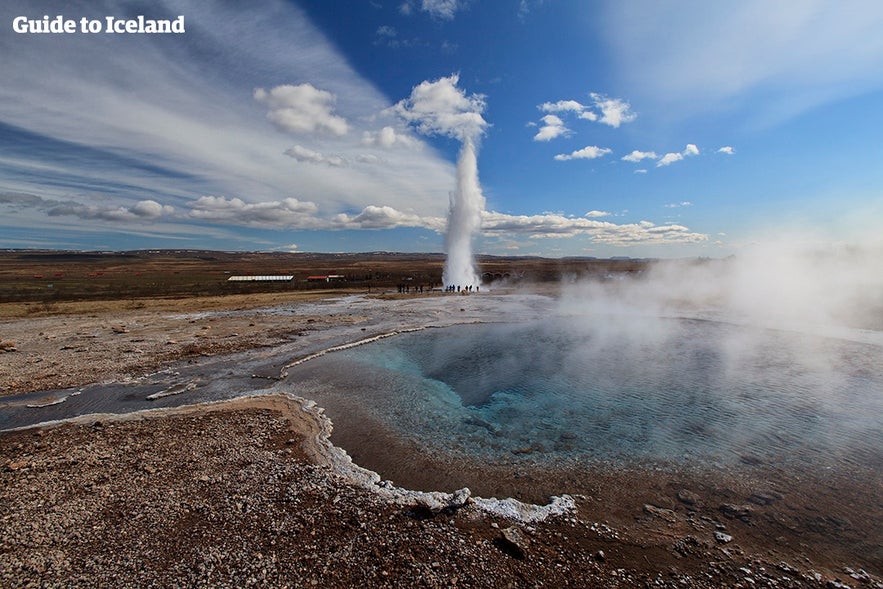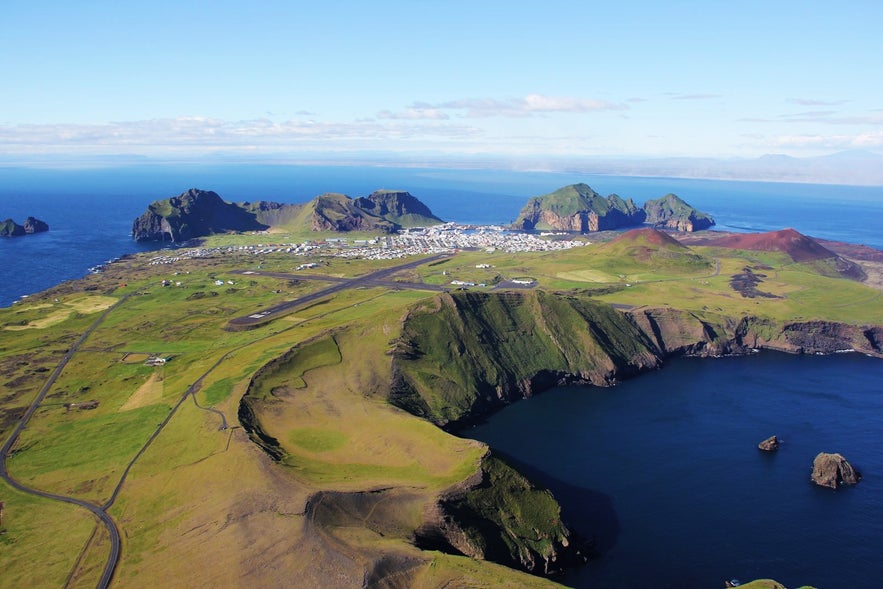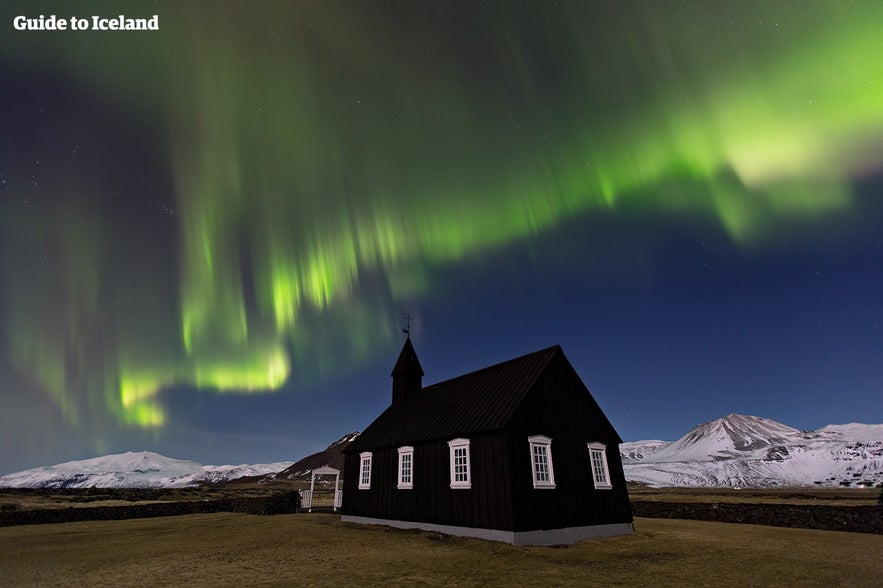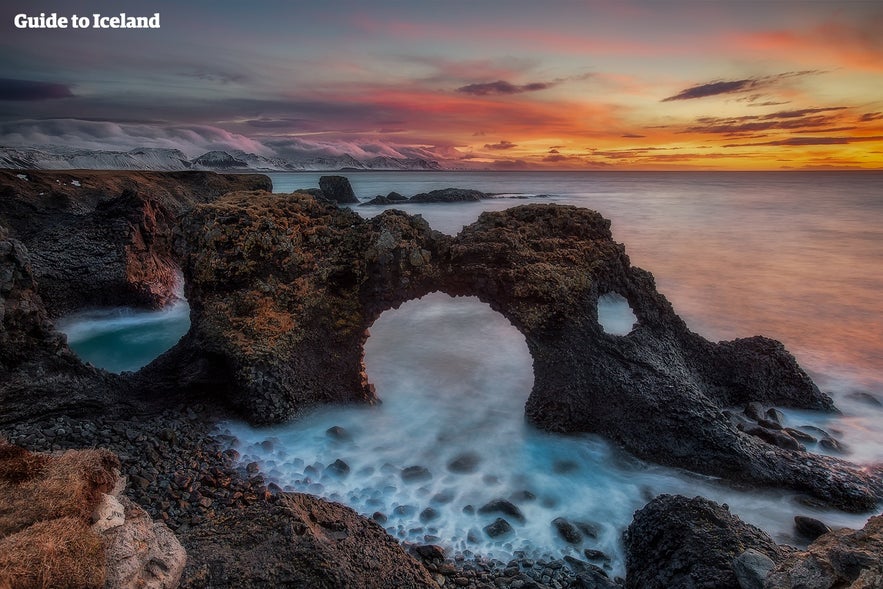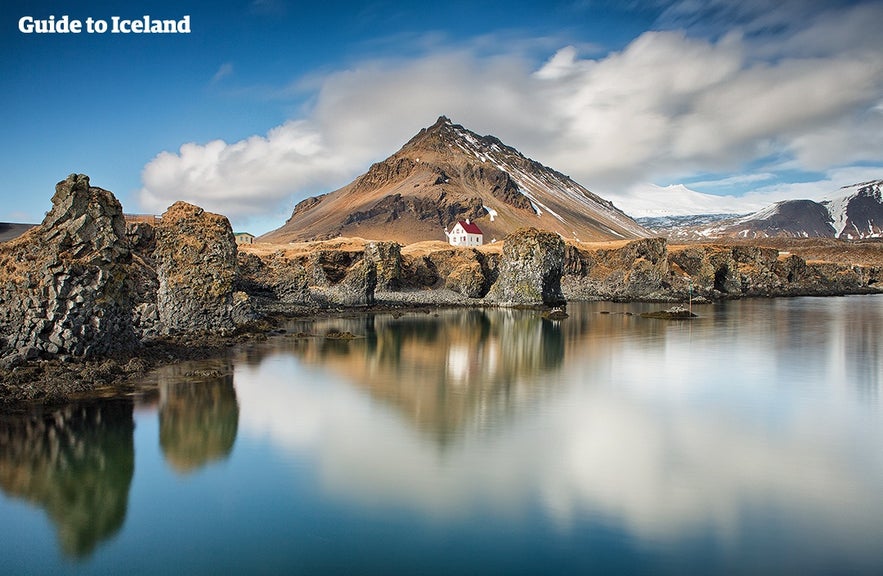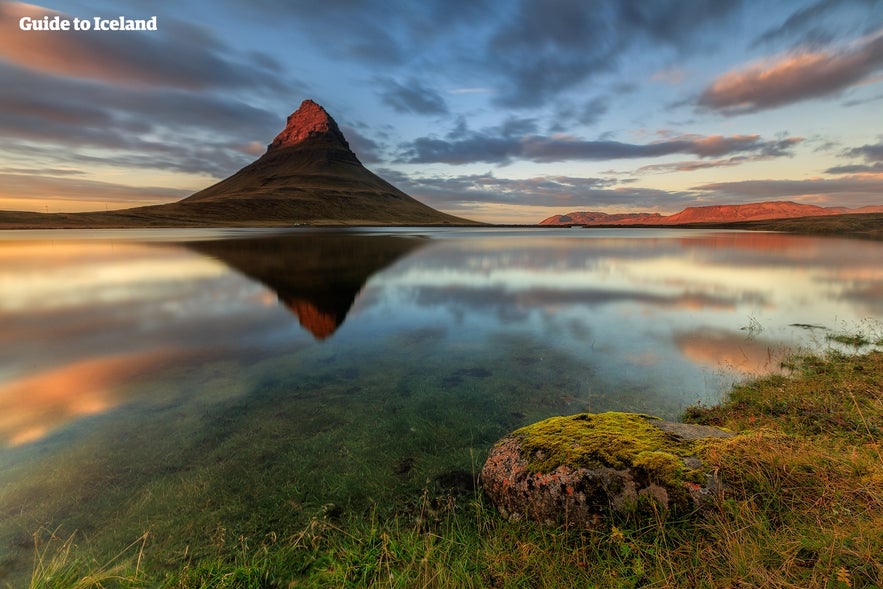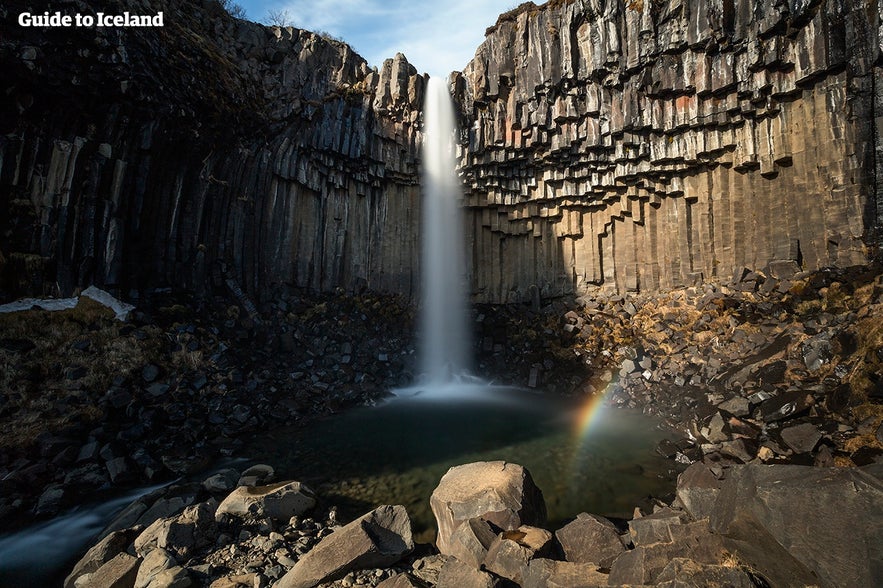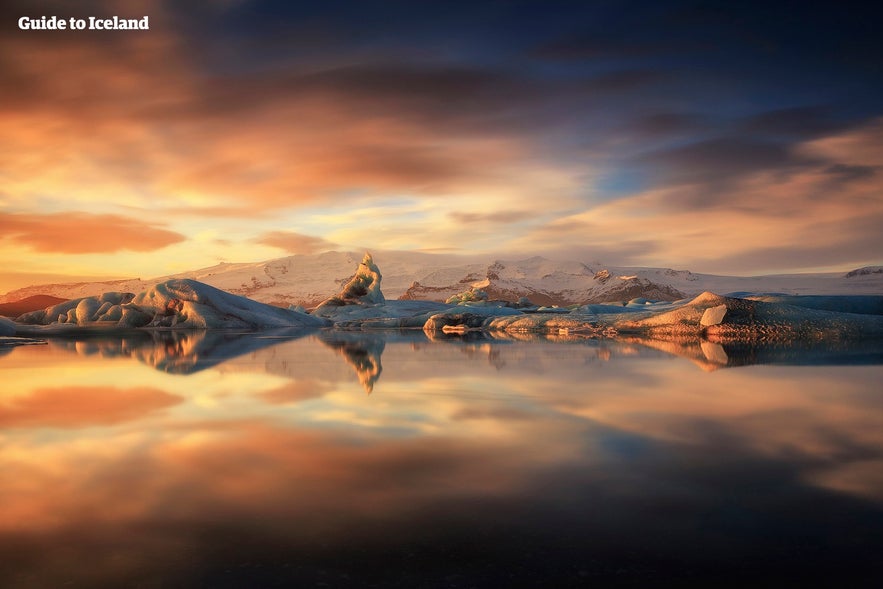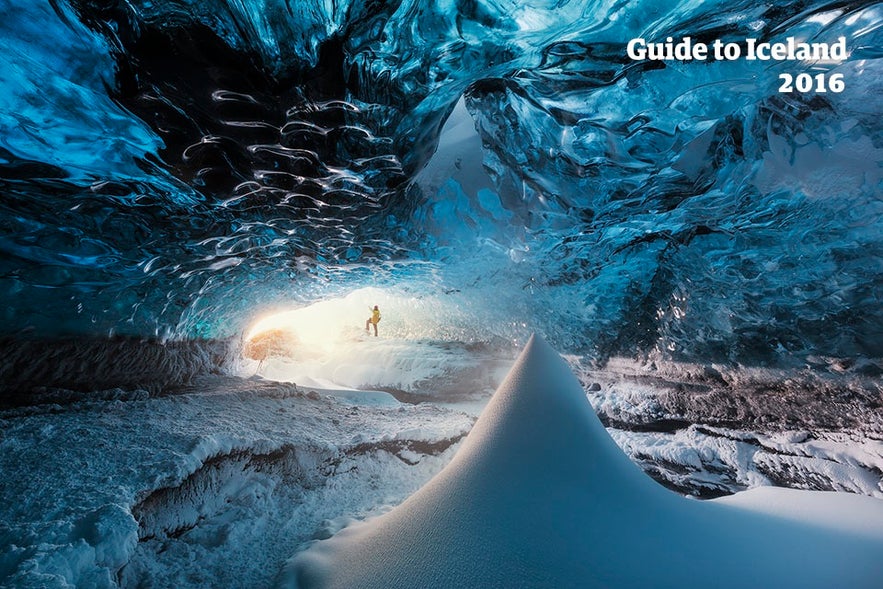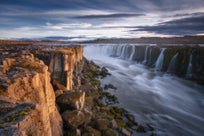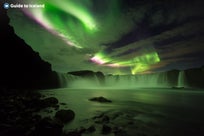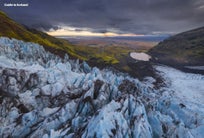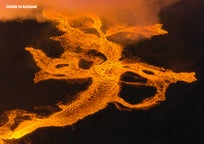
Top 5 Destinations in Iceland
What are the must-see places to visit on every journey to Iceland? See our list of the top 5 destinations in Iceland, find out where to go and how to get there!
- Find out What to Do & Where to Go in Iceland
- Read about the Top 10 Things to Do in Reykjavik
5. The Westman Islands
Photo from Westman Islands Flightseeing Tour | South Coast Departure
Vestmannaeyjar (Westman Islands) are a group of 15 magnificent islands and over 30 large cliffs, rocks and skerries, 70 kilometres off the southern coast of Iceland.
The largest of the islands, Heimaey, has a population of roughly 4,100 and is the only inhabited island of the entire archipelago. It is also home to the largest puffin colony on the planet.
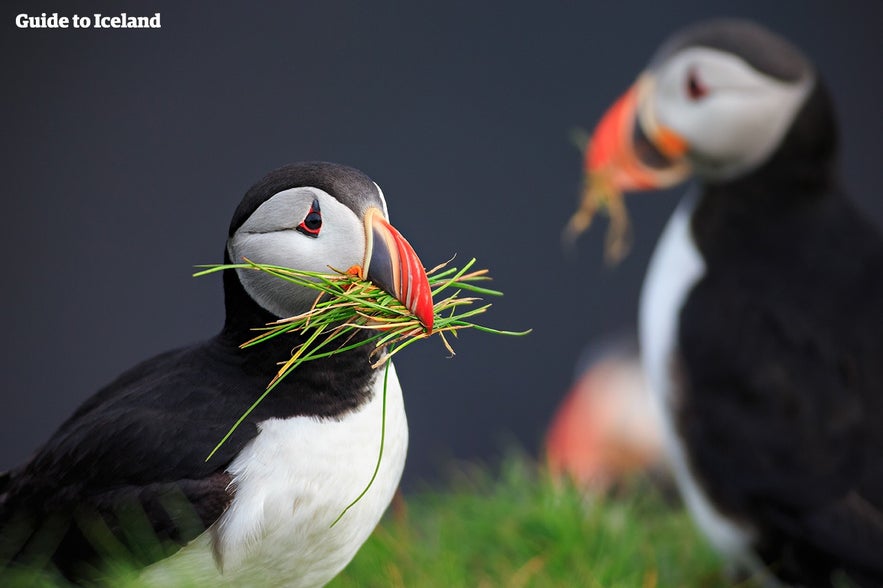
On the morning of January 23 in 1973, the Westman Islands were subject to one of the most famous volcanic eruptions of modern times when, after being dormant for 5000 years, the volcano Eldfell (Mountain of Fire) burst into life on Heimaey, forcing the island's entire population to evacuate to the mainland.
Over a period of five months, fire and brimstone destroyed well over 300 homes, while hundreds more were buried in black ash. And in July of 1973, when the displaced islanders could finally return home, they were set with the enormous and daunting task of clearing their island of ash, and rebuilding or excavating countless houses.
Although the events miraculously claimed but a single human life, the eruption of 1973 remains one of Iceland's most devastating natural disasters. The Westman Islands are a modern Pompeii in the north, with many of the houses remaining intact under heaps of volcanic ash.
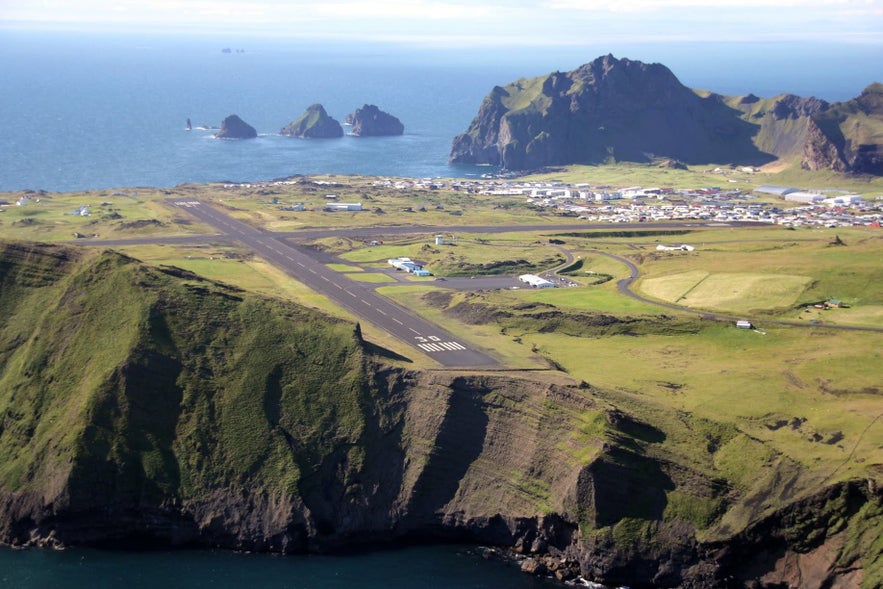 Photo from Westman Islands Flightseeing Tour | South Coast Departure
Photo from Westman Islands Flightseeing Tour | South Coast Departure
On a guided Westman Islands Volcano Tour, you will be driven from Reykjavík and through Iceland's southern shores where you will visit sea-side villages before setting off by ferry for Heimaey. There you will venture into the Eldfell volcanic crater and take in the magnificent scenery before visiting Eldheimar, a museum which is built on top of an excavated house that was buried in the ash of 1973.
Later in the day, a boat will take you out to sea, where you will explore many of the Westman Islands magnificent littoral caves and visit the cliffs that are the habitat of the largest puffin colony in the world, around which whales are commonly spotted in summer.
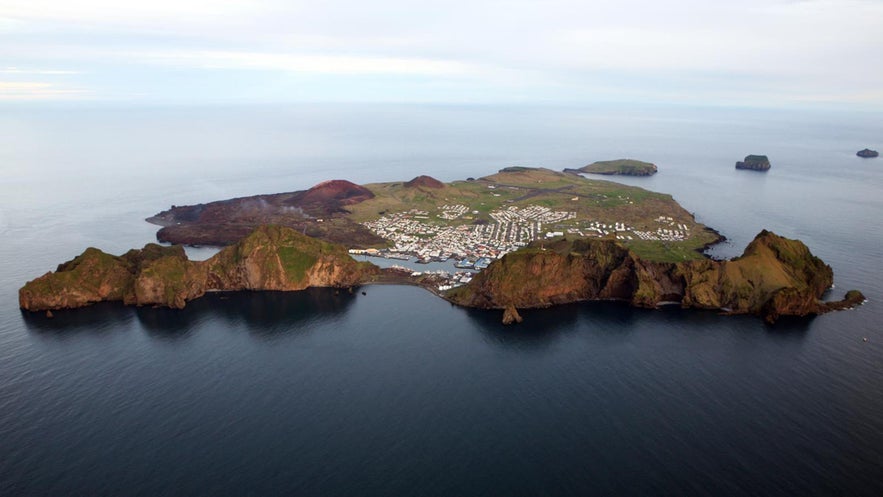 Photo from Guided 2 Hour Winter Express Tour of Heimaey Island with Entry to the Puffin Sanctuary
Photo from Guided 2 Hour Winter Express Tour of Heimaey Island with Entry to the Puffin Sanctuary
Should you want to visit the Westman Islands by yourself, you have the options of utilising a domestic flight or taking the ferry Herjólfur which sails from the town of Þorlákshöfn and from the harbour of Landeyjahöfn on Iceland's south coast.
You can visit as part of a day tour from Reykjavik or enjoy a stay at the great accommodations in the Westman Islands.
4. Snaefellsnes Peninsula
The Snæfellsnes peninsula in west Iceland is often referred to as “Iceland in miniature” because of the great variety of geological marvels it contains—in fact, a day tour of the peninsula will allow you to see and experience many of Iceland’s most sought-after natural wonders.
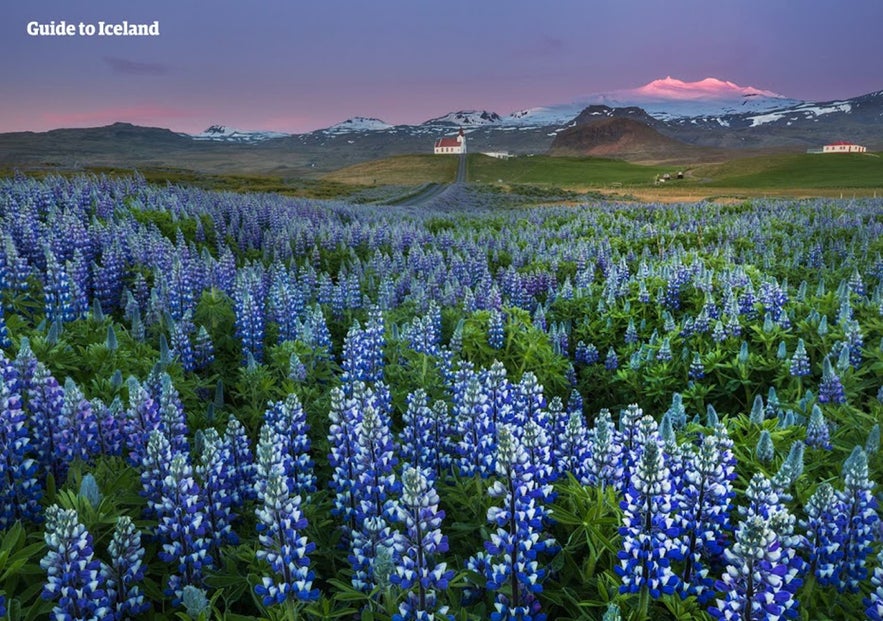
Shrouded in mystery, this majestic natural reserve is crowned by the great Snæfellsjökull, an active stratovolcano glacier with an elevation of 1446 meters.
Those sensitive to the energy world have long claimed the glacier to be a center of great and pure dynamic power, with some going as far as maintaining it to be one of the seven most important cosmic energy centers on the planet.
In Snæfellsjökull is where Jules Verne famously placed the entrance to Earth's core in his Journey to the Center of the Earth, and the glacier plays a prominent role in Under the Glacier, an otherworldly masterpiece by the Icelandic Nobel laureate Halldór Kiljan Laxness.
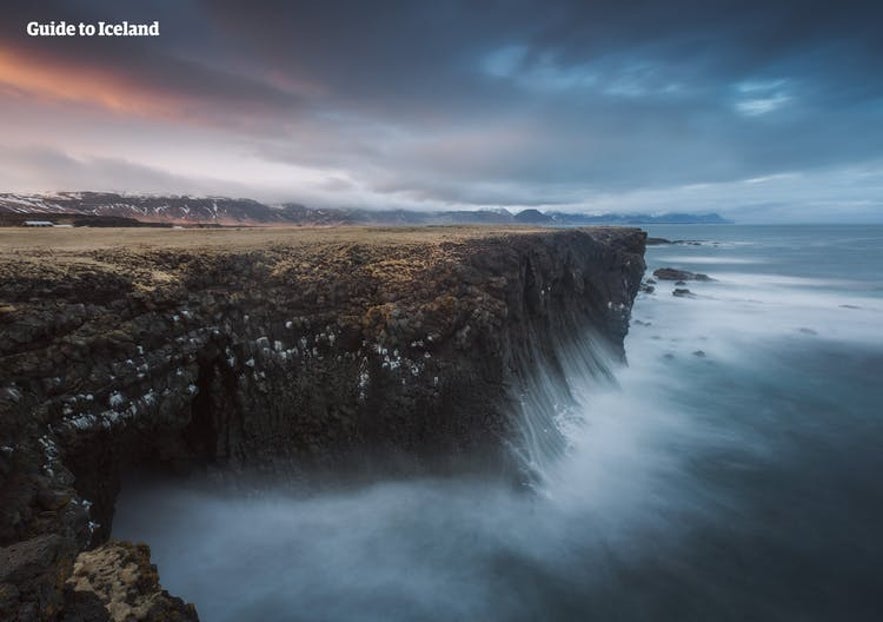
A guided Snæfellsnes National Park Day Tour appropriately starts at the roots of Snæfellsjökull, where you take in the powerful scenery before heading to Ytri Tunga where you will visit one of Iceland's largest seal colonies.
After accosting the lazing seals on the black pebble beach, the tour takes you to Arnarstapi and Hellnar, two ancient fishing outposts that are located in a coastal area of magnificent beauty.
Hellnar is renowned for its stunning rock formations, in particular, the Baðstofa sea cave, one of Iceland's most peculiar caves, known for its rich birdlife, strange light exposure, and a colorful interior.
Arnarstapi is situated by the roots of Stapafell, a palagonite pyramid whose peak is crowned with a mighty Fellskross (Mountain Cross), an ancient Viking symbol of godly powers.
Throughout the 17th and 18th centuries, when Iceland was under Danish mandate, Arnarstapi was a vibrant harbour community which served the entire west coast, and many of the houses from that period can still be found there, each with a history uniquely of its own.
The harbour is still in use, but today it serves not Danish colonialists but local fishing boats and recreational vessels.
The last stop of the tour truly captures the spirit and beauty of Snæfellsnes, where surrounded by trickling streams and whispering rivers, Kirkjufell mountain rises from the lush green fields of the peninsula's northern coast.
A journey into Snæfellsnes is a journey into a world of diversity that will fulfill the expectations of anyone in search of the very best Iceland has to offer. Snæfellsnes Tours depart daily from Reykjavík, but should you want to explore the peninsula by yourself, I recommend that you rent a car and make careful plans to ensure that you get the most out of your journey. If you prefer staying on the peninsula and really immerse yourself in its natural beauty, you should book accommodation in Snaefellsnes.
3. The Golden Circle
Offering both spectacular sights and a glimpse into Iceland's history and culture, the Golden Circle is by far the most popular tourist route in Iceland.
Setting out from the capital of Reykjavík, Golden Circle Tours have three primary stops: the national park of Þingvellir, the waterfall Gullfoss and the geothermal area of Haukadalur.
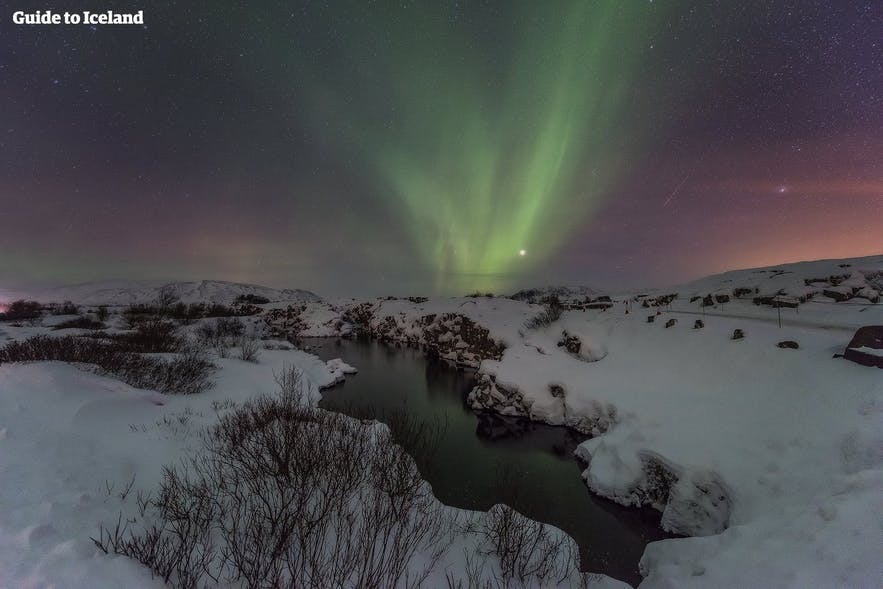
The affordable and great value golden circle tour, however, starts with a visit to Kerið, a red rock volcanic crater which embraces a sky blue lake in its bottom, displaying a stunning contrast of colours and captivating scenery.
After a stop by Kerið, the tour takes you into the valley of Haukadalur, an area of unspeakable geothermal power that is crowned by the geysers Strokkur and Geysir.
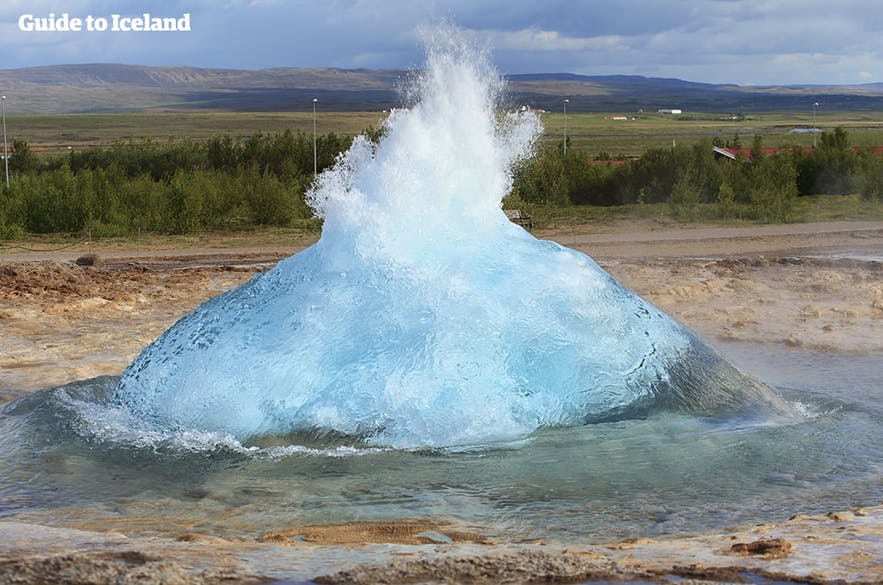
Haukadalur also contains numerous fumaroles, mud pots, and hot springs, and though the ancient Geysir is mostly inactive, the ever-vigorous Strokkur spectacularly spouts vast amounts of hot water 15-20 meters into the air every 10 minutes in a magnificent display of the elements that will prepare you for an encounter with the stunning force of nature that is Gullfoss.
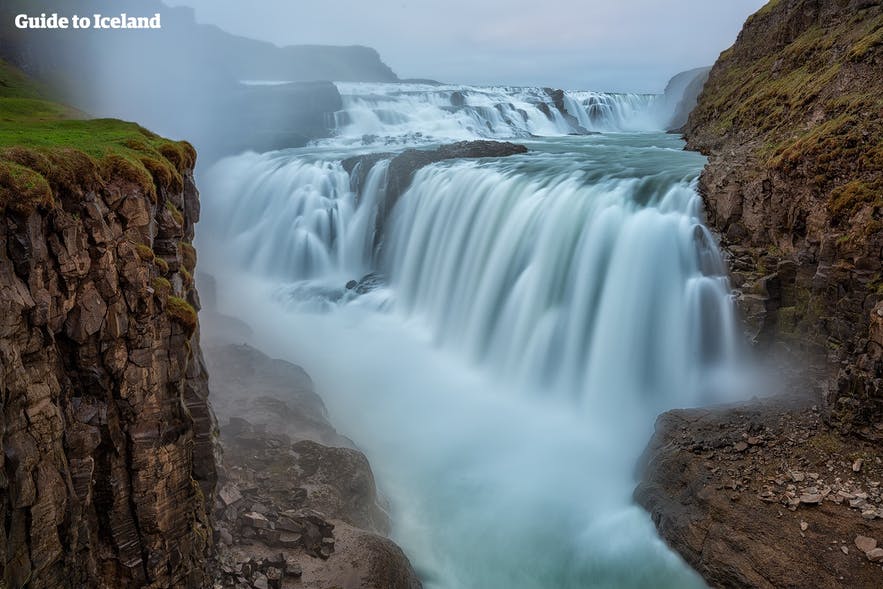
Gullfoss is Iceland's most popular waterfall. Wild and wide, Gullfoss roars on the Hvítá River in two tiers, plummeting into the great 70-meter deep Hvítá canyon.
And on sunny days, when a rainbow gracefully arches over the waterfall in a stunning display where tranquillity meets power, one can easily understand why Gullfoss is Iceland's most iconic natural attraction.
The last stop of the Golden Circle tour is the UNESCO World Heritage site of Þingvellir, a national park of vivid beauty, brimming with historical and geological significance.
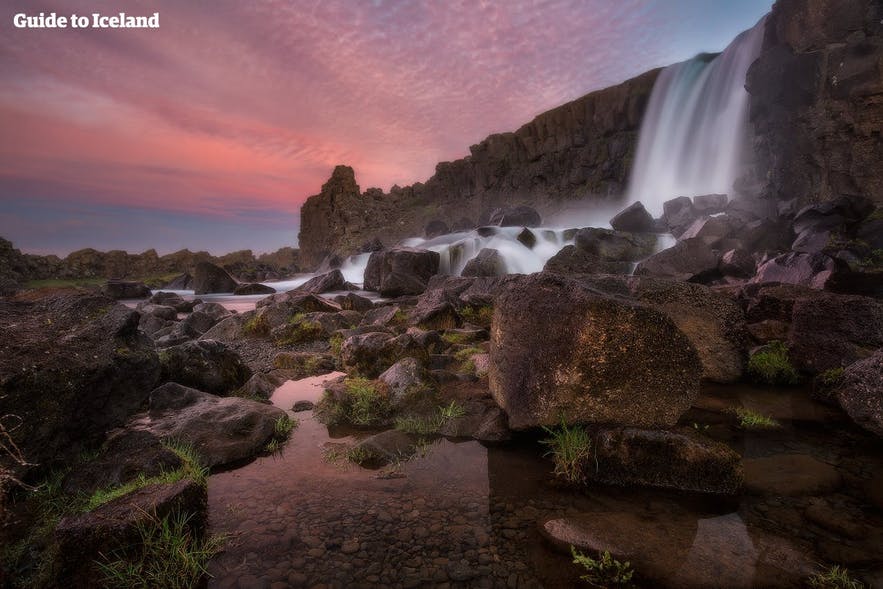
In Þingvellir you will walk the rift valley of the Mid-Atlantic Ridge that separates the Eurasian and North American tectonic plates and explore the area where, in 930, the Vikings established Alþingi, the oldest extant parliament in the world.
Unchanged for millennia, Þingvellir is the birth-place of Icelandic culture and democracy, the national shrine of Iceland and the perfect conclusion to a golden circle tour—the ultimate must on every to-do list. If you want to stay close to the iconic route, book a hotel on the Golden Circle.
2. Skaftafell Nature Reserve
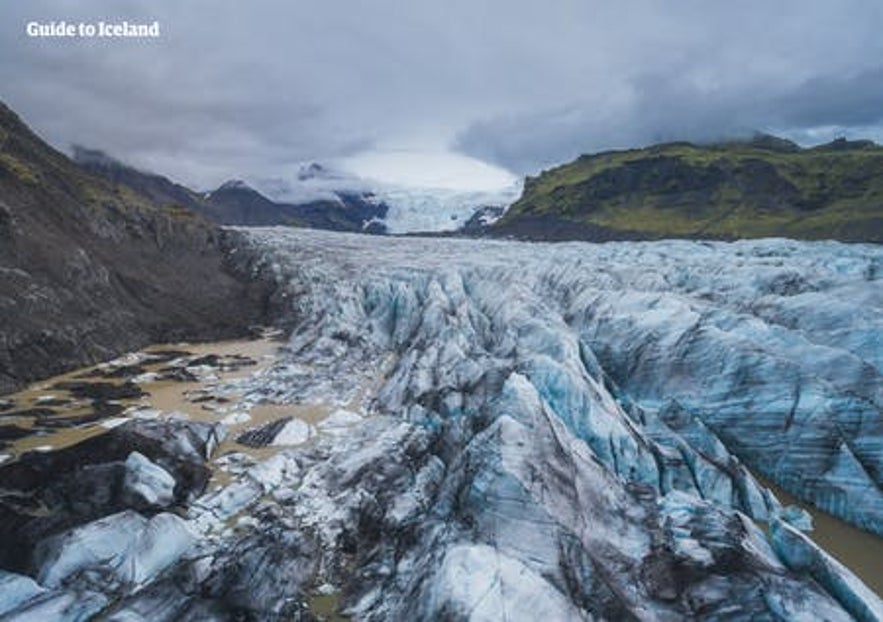
Forged by a relentless duel of fire and ice, the Skaftafell National Reserve in southeast Iceland embodies fantastically unusual landscapes that are unmatched anywhere in the world.
Skaftafell's pristine lands—covering over 4800 square kilometers—are composed of a contrasting scenery where mighty rivers cut through a great black desert that envelopes a birch wood oasis under the Svínafellsjökull glacier tongue.
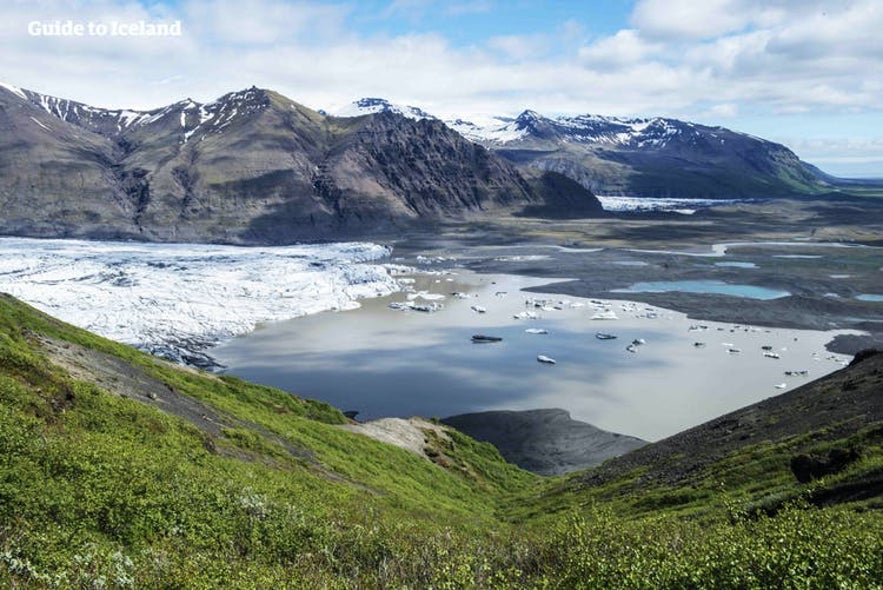
Famed for its mild climate, Skaftafell has for a long time been one of Iceland's most popular summer destinations, where natives and foreign visitors alike have pitched their tents on a campground that is watched over by the mighty Öræfajökull glacier himself.
Local services include transportation, food, accommodation, and guided tours onto the glacier tongue, where highly experienced guides lead their guests through fantastic fields of deep blue crevasses and towering ice sculptures.
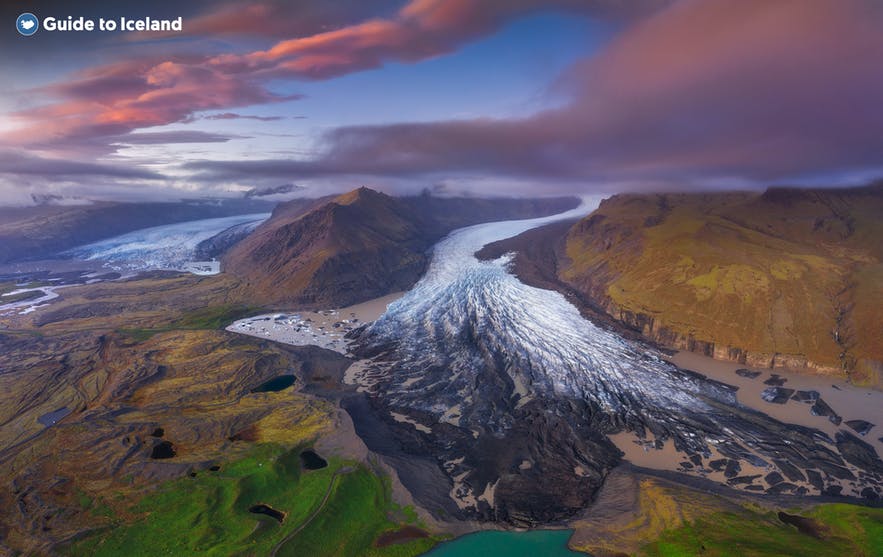
Glacier Hiking in Skaftafell is an unforgettable experience that is sure to be the highlight of your journey into one of Iceland's most magnificent natural reserves, but leading from the campground itself are also numerous hiking trails to stunning locations.
A relatively short and easy walk takes you to Hundafoss, the first and highest of a series of waterfalls on the trail leading to the majestic Svartifoss, which flows gracefully over a great black basalt cliff in a birch wood forest clearing.
Skaftafell also serves as the ideal base camp for mountaineers seeking to climb Iceland’s highest peak, Hvannadalshnukur, which rises from the Öræfajökull volcanic glacier with an elevation of 2110 meters.
1. Jokulsarlon Glacier Lagoon
Approximately 60 kilometers east of Skaftafell, titanic icebergs float peacefully on Jökulsárlón, an enchanting azure blue glacier lagoon, where seals swim around countless mountains of ice that regularly break off the Breiðamerkurjökull glacier ice cap.
Jökulsárlón is always ranked amongst Iceland's greatest natural wonders and recently became the deepest lake in Iceland; the lagoon steadily grows in accordance with glacial retreat, extending its boundaries and depths, which have now reached 248 meters.
Jökulsárlón tours have attracted visitors to southeast Iceland for decades and remain one of Iceland's most popular tourist activities throughout the year.
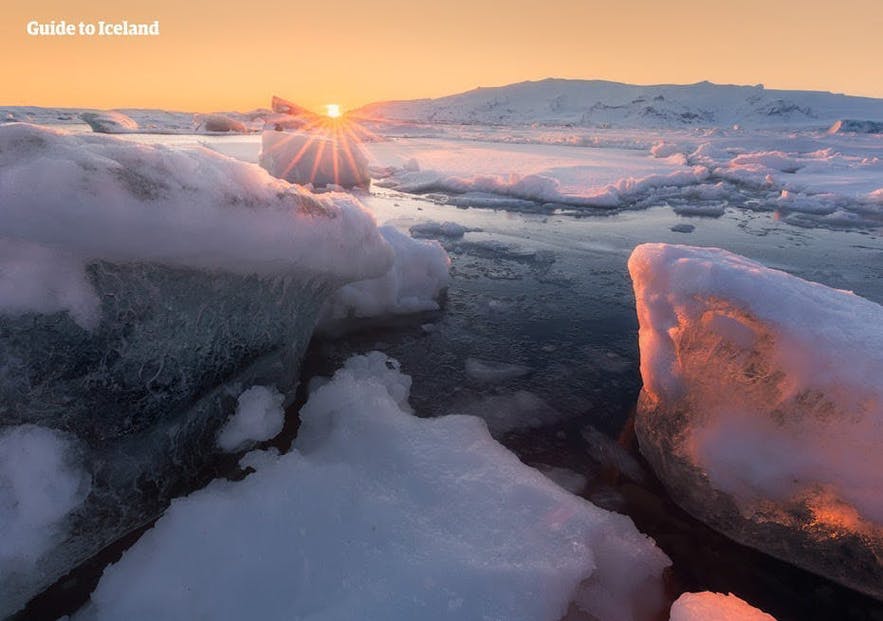
During summer, a Jökulsárlón Boat Tour will take you onto the lagoon in an amphibian boat, where you will experience the fairyland of ice and wildlife as you sail among the huge Icebergs and even get to taste the 1000-year-old ice.
The lagoon is equally stunning in winter time, and in late autumn, when boats can no longer sail on the lagoon, a tour departs from Jökulsárlón towards a different miracle of ice.
In summer, underground rivers of meltwater cut through Vatnajökull—Iceland's largest glacier—creating a vast subterranean network of sapphire ice channels; and when the summer meltwater has run its course, the winter wonderland of the Vatnajökull Ice Caves is left unveiled.
The Ice caves are rare phenomena and an Ice Cave Tour is a once in a lifetime adventure that is sure to leave lasting memories.
This 2-day winter tour takes you inside an Ice Cave and to Jökulsárlón, as well as the South Coast with Northern Lights hunting.
Tours to Jökulsárlón depart from Skaftafell and Reykjavík, but you should book the popular Ice Cave Tour well in advance so that you don't miss out on the unique opportunity of exploring the interior of one of Europe's largest glaciers.
Other interesting articles

Gas Stations in Iceland: The Ultimate Guide
Gas stations in Iceland are an integral part of traveling around the country by car and can be found along the highways of the capital as well as in the more sparsely populated rural regions of the co...Read moreBest Swimming Pools in Iceland
Where are the best pools in Iceland? Where are the best hot tubs? What do Icelandic swimming pools offer? Read about the Best Swimming Pools in Reykjavík Find out more about showering at pool...Read moreTop 5 Places to Visit in the Highlands of Iceland | A Beginner's Guide
What are the Icelandic Highlands? What are the best Icelandic Highland destinations? When are the Icelandic Highlands accessible? Extending over 40,000 square kilometers, the Icelandic Highlands ra...Read more

Download Iceland’s biggest travel marketplace to your phone to manage your entire trip in one place
Scan this QR code with your phone camera and press the link that appears to add Iceland’s biggest travel marketplace into your pocket. Enter your phone number or email address to receive an SMS or email with the download link.

